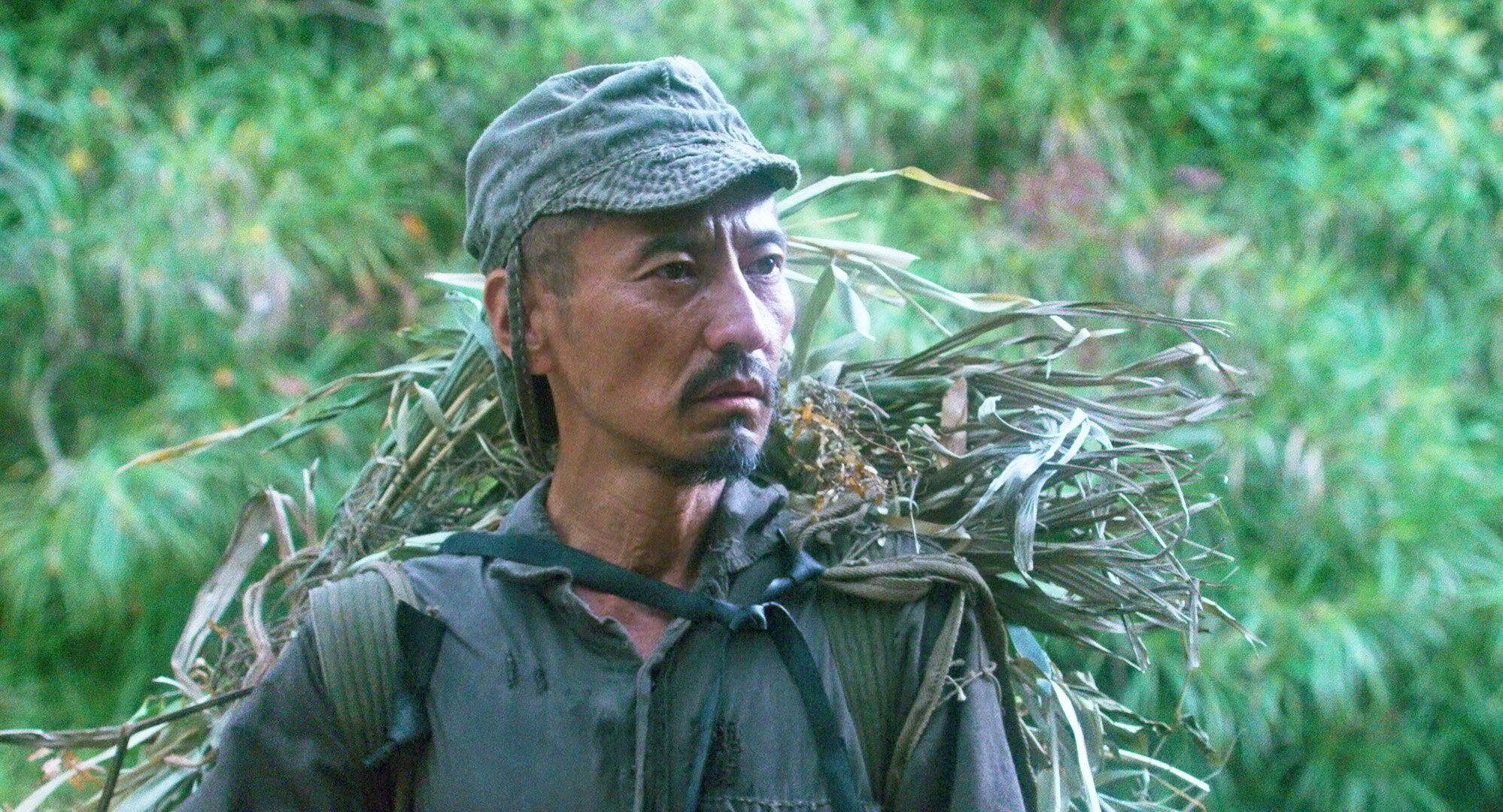Film Review: Onoda: 10,000 Nights in the Jungle

Thousands of movies have been made about World War II as seen through the eyes of allied forces, but only rarely do we get a glimpse of Pacific theater events from the Japanese side of things. Clint Eastwood’s Letters from Iwo Jima springs to mind, as does the fantastic documentary Paper City from earlier this year (about the American firebombing of Tokyo), but the proportions – and therefore the narratives about what happened – are unsurprisingly skewed in favor of the victors.
However, it’s the aftermath of these allied victories that brought us films like Masaki Kobayashi’s The Human Condition trilogy, Isao Takahata’s 1988 anime Grave of the Fireflies, and countless more post-war Japanese masterpieces, from Kurosawa to Godzilla. What happens in the days, weeks, months, or even years after the guns have fallen silent and the combatants have all gone home? What if some of them don’t want to go home but instead keep on fighting? What then?
French director Arthur Harari attempts to answer these questions with his epic Onoda: 10,000 Nights in the Jungle – a film that captures, perhaps better than most, the indoctrination and fanaticism it takes to carry out something as insane as global warfare, and the men who refuse to give up the fight because of it.
Onoda is based on the real-life experience of Hiroo Onoda (played as a young man by Yuya Endo and Kanji Tsuda as the older version) a Japanese intelligence officer who, while acting on what he believed were direct orders from superior officers to never surrender or to kill himself, took to the hills of the Philippine island he was stationed at and waged a meager guerrilla war against its people for nearly thirty years. If this seems crazy, keep in mind that, when Onoda finally surrendered in 1974, he wasn’t even the last Imperial soldier to do so. A private in Indonesia held out even longer.
While technically a war film, Onoda takes place almost entirely after the war had ended, but given the mindset of Onoda and his handful of companions, a Japanese surrender seemed about as unlikely as a man walking on the moon (which, in 1969, they listened to live on a small transistor radio they kept with them, but easily dismissed as complex allied propaganda).
Looked at through the lens of a character study or biopic, Onoda breaks free of most American war film trappings by focusing on both the long term psychological effects of prolonged combat, and the conditions under which something like this could happen in the first place.
What Harari and Onoda excel at is presenting these conditions not as a series of Orwellian brainwashing techniques, but as a subtle appeal to the patriotism of young, misguided soldiers looking to belong to something bigger than themselves. By manipulating their love of country into an intense and undying loyalty – along with the express orders to never surrender or be taken alive, despite what their eyes and ears tell them – it’s no wonder so many soldiers went into hiding and refused to give up.
But Onoda doesn’t hammer us over the head with tortured exposition or detailed diatribes about the unfairness of war and a longing for home and peace. Instead, it simply shows us the ups and downs, friendships, mundane struggles, weather, and boredom of a life under what is believed to be a hostile occupation. We don’t need to be told what Onoda and his companions (most notably Kinshichi – played by Yuya Matsuura and Tetsuya Chiba), are thinking because it’s written all over their faces, on the mud of their ragged clothes, and in the warmth that grows between these men who’ve found themselves in an impossible situation. Harari immerses us so deeply in this unique situation that it becomes easy to understand the extremely unsound, yet often darkly comedic, rationale that keeps these men hidden. Are they insane? By sensible measurements taken from a place of comfort and privilege, perhaps. But once inside Onoda and Kinshichi’s heads, that assertion becomes increasingly suspect.
Onoda: 10,000 Nights in the Jungle is the kind of film that doesn’t get made very often. It’s beautiful and unpretentious, yet remains thought-provoking and surprisingly humorous when it needs to be. For fans of war films, it has its share of harrowing moments (not to mention ’70s-styled production, complete with a semi-washed-out tint to the coloring), but it truly shines as an exploration of the effects of military indoctrination and the lengths one is willing to go to uphold what they’ve been made to believe is their sacred duty.
The case could be made that Onoda is also a comment on the current state of world affairs, the military-industrial complex, and the shameful lack of treatment given to soldiers returning from wars around the world, but I’ll let your mind go there for itself.

